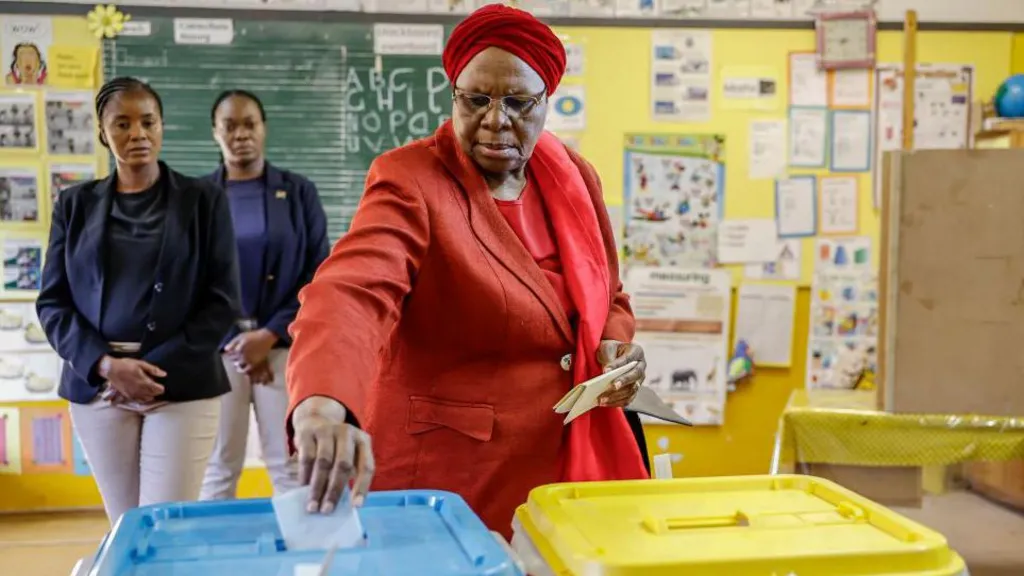Namibians vote as ruling party seeks to extend 34-year rule
3 min read
Voting is currently underway in Namibia for what could be the most competitive election in the country’s history since gaining independence from South Africa 34 years ago. The ruling South West Africa People’s Organisation (Swapo) is seeking to extend its 34-year rule, with Netumbo Nandi-Ndaitwah vying to become the nation’s first female president. Nandi-Ndaitwah, the Swapo candidate, is hoping to succeed Hage Geingob, who passed away in February after serving as president for nine years.
However, Swapo faces growing challenges due to rising unemployment, poverty, inequality, and corruption allegations that have eroded its traditional support base. As a result, Nandi-Ndaitwah’s campaign is being heavily scrutinized, with many questioning whether the ruling party can maintain its dominance amid widespread discontent.
Nandi-Ndaitwah’s strongest challenger is Panduleni Itula, a former dentist and lawyer who leads the Independent Patriots for Change (IPC) party. He is among the 14 candidates vying for the presidency. Local media reports show that long queues formed early on Wednesday morning at schools and other polling stations, as Namibians eagerly participated in this historic election. Voting began at 7:00 local time (05:00 GMT) and will close at 21:00.
Swapo has been in power since Namibia gained independence in 1990. A candidate must secure more than 50% of the vote to win outright; otherwise, a second-round runoff will be held between the top two candidates. Election results are expected to be announced over the coming days, though analysts believe the final outcome could be unpredictable.
Nandi-Ndaitwah cast her vote in Windhoek, the capital, shortly after the polls opened, encouraging other Namibians to participate. She emphasized that the election would shape the country’s future for the next five years. Despite facing a traditional, male-dominated political culture, Nandi-Ndaitwah has established herself as a trusted leader, having served in high-ranking government positions for more than 25 years.
Her main opponent, Itula, has experience from the 2019 presidential election, where he secured 29% of the vote, though he was defeated by Swapo’s Geingob, who won 56%. Itula described the election day as a crucial moment for Namibia’s democracy, stressing the importance of participating in the process. His challenge is formidable, with many Namibians hoping that he will offer a fresh perspective on the country’s governance.
In the wake of Geingob’s death, interim President Nangolo Mbumba has been leading Namibia, though he is not running in this election. Analysts believe that the outcome may hinge on young voters, who represent more than half of Namibia’s eligible electorate. This group, eager for change and reform, could play a pivotal role in shaping the future of the country.
Alongside the presidential election, Namibians are also casting ballots for new members of parliament. Voter turnout is expected to be high, with more than half of Namibia’s approximately three million people eligible to vote. Despite being sparsely populated, Namibia is known for its relative peace and stability, which has made it an example of democratic governance in Southern Africa.
This election, which has drawn significant attention both domestically and internationally, is widely viewed as a test for Swapo’s continued dominance and a reflection of the broader political and economic challenges facing Namibia. With high youth unemployment, slow economic growth, and growing demands for accountability, the election results may signal a shift in Namibia’s political landscape.
As the country awaits the final vote tally, it remains to be seen whether Swapo will retain control or if a new political era is on the horizon. Either way, the 2024 Namibian elections will be remembered as a key moment in the nation’s democratic evolution.







